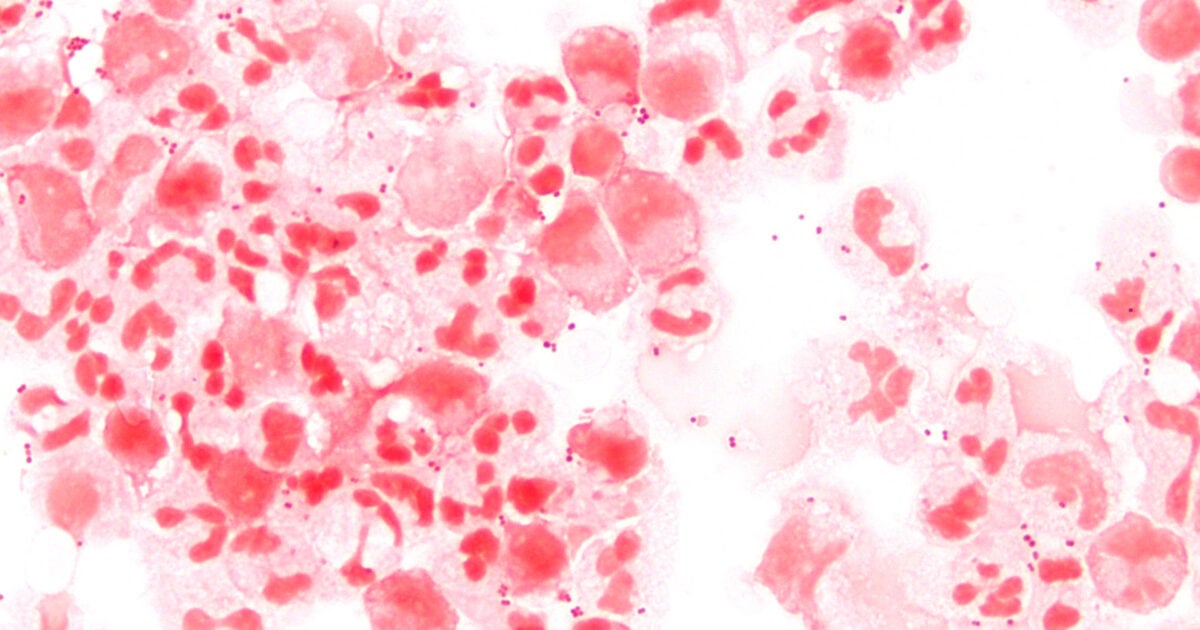CDC Issues Alert After Invasive and Deadly Meningococcal Disease Rates Soar in U.S.
CDC Issues Alert After Invasive and Deadly Meningococcal Disease Rates Soar in U.S.


An urgent health alert has been issued by the Centers for Disease Control and Prevention (CDC) as the United States witnesses a sharp increase in the incidence of invasive meningococcal disease.
According to CDC, meningococcal disease “refers to any illness caused by bacteria called Neisseria meningitidis. These illnesses are often severe, can be deadly, and include infections of the lining of the brain and spinal cord (meningitis) and bloodstream.”
Transmission occurs through close contact, prompting urgent calls for individuals with symptoms to seek care promptly to improve outcomes with timely antibiotic treatment.
With 422 cases recorded last year, this figure marks the highest annual case count since 2014, FOX News reported.
In the latest update from the agency, 143 cases have been reported as of March 25, which is 62 more than were reported at the same time in the previous year.
The CDC has identified the predominant strain responsible for the outbreak as serogroup Y ST-1466, which seems to disproportionately affect adults between the ages of 30 and 60, accounting for 65% of cases.
Additionally, the disease has been particularly prevalent among Black or African American individuals, who represent 63% of cases, and people with HIV, comprising 15% of the total.
This invasive strain has also been associated with a higher fatality rate compared to previous years. Out of 94 patients, 17 have succumbed to the infection — translating to a distressing fatality rate of 18%.
To put this into perspective, between 2017 and 2021, the fatality rate stood at 11%, while the typical rate ranges from 10% to 15%, even with antibiotic intervention, according to CDC data.
More from CDC:
Meningococcal disease, caused by the bacterium Neisseria meningitidis, is a rare but severe illness with a case-fatality rate of 10–15% even with appropriate antibiotic treatment. Meningococcal disease most often presents as meningitis, with symptoms that may include fever, headache, stiff neck, nausea, vomiting, photophobia, or altered mental status; or as meningococcal bloodstream infection, with symptoms that may include fever and chills, fatigue, vomiting, cold hands and feet, severe aches and pains, rapid breathing, diarrhea, or, in later stages, a dark purple rash. While initial symptoms of meningococcal disease can at first be non-specific, they worsen rapidly, and the disease can become life-threatening within hours. Immediate antibiotic treatment for meningococcal disease is critical. Survivors may experience long-term effects such as deafness or amputations of the extremities.
Of the six N. meningitidis serogroups — A, B, C, W, X, and Y — responsible for most meningococcal disease worldwide, the four serogroups B, C, W, and Y circulate in the United States. Vaccines against serogroups A, C, W, Y (MenACWY) and serogroup B (MenB) are available in the United States. MenACWY vaccines are routinely recommended for adolescents and for people with other risk factors or underlying medical conditions, including HIV.
Across the United States, 101 ST-1466 cases were reported in 2023. This number is expected to increase with additional laboratory testing data. Cases of invasive meningococcal disease caused by this strain occurred in both males (65%) and females (35%) and disproportionately occurred in people ages 30–60 years (65%), Black or African American people (63%), and people with HIV (15%). In addition, most cases of invasive meningococcal disease caused by ST-1466 had a clinical presentation other than meningitis: 64% presented with bacteremia, and at least 4% presented with septic arthritis. Of 94 patients with known outcomes, 17 (18%) died; this case-fatality rate is higher than the historical case-fatality rate of 11% reported for serogroup Y cases in 2017–2021.
The serogroup Y ST-1466 strain has contributed to previously reported increases in meningococcal disease in people with HIV. Based on updated surveillance data, 24 ST-1466 cases have now been reported in people with HIV in 2022–2023; only four were previously vaccinated with MenACWY and none were up to date on recommended doses. To date, no other ST-1466 cases have been identified in people who previously received MenACWY vaccine.
Serogroup Y ST-1466 isolates tested to date have been susceptible to all first-line antibiotics recommended for treatment and prophylaxis. This strain is distinct from ciprofloxacin-resistant serogroup Y strains that are also circulating in the United States and that are disproportionately affecting Hispanic individuals.
The post CDC Issues Alert After Invasive and Deadly Meningococcal Disease Rates Soar in U.S. appeared first on The Gateway Pundit.
Go to Source
Author: Jim Hᴏft
